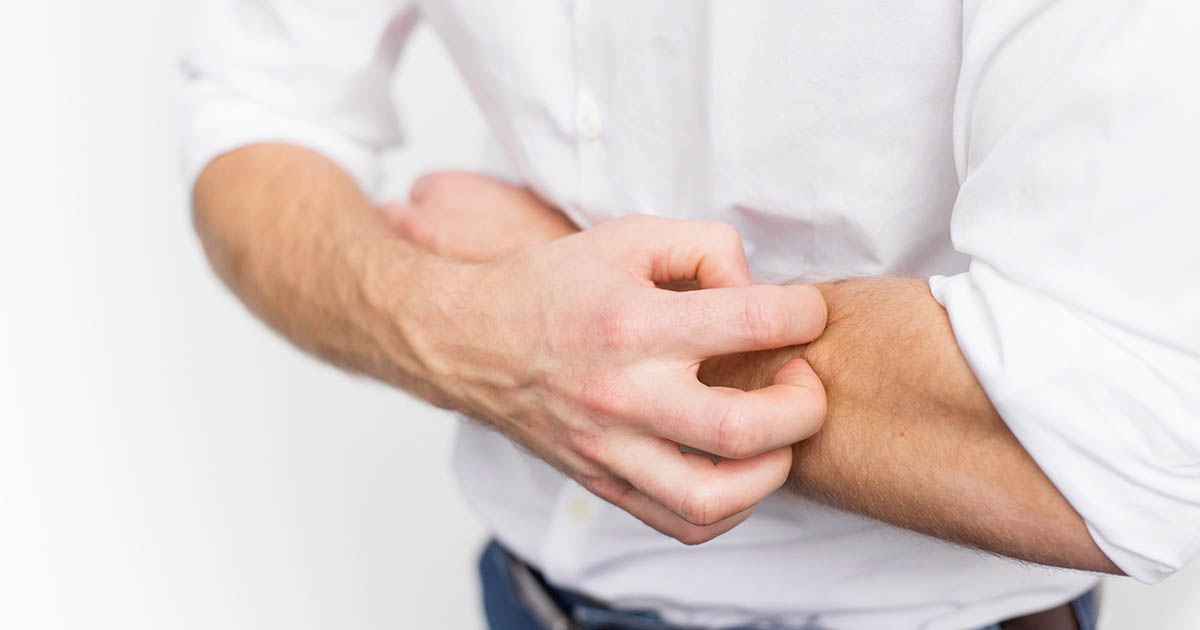Scabies Treatment Options And Management
Scabies is highly contagious, and they can make anyone's skin crawl. They are microscopic creatures with eight legs that make themselves at home underneath the first layer of the skin, which where they lay their eggs. Newly hatches mites can get out of the skin and move over the body to find a new home in different body parts. They’re highly contagious, and they cause unbearable itching in anyone unfortunate enough to become a host. These mites do not always cause noticeable scabs on the body, but they commonly do just that in individuals who have compromised immune systems. When the mites grow in number and burrow in the same place, they cause the skin in that area to swell and crust over.
Learn how to treat and manage scabies now.
Medication To Treat The Infestation

Using medication to treat the infestation is mandatory if individuals want to get rid of scabies. Patients may not realize they have scabies until it’s too late and the infestation is prominent. The earliest symptoms often include a lot of itching, which is typically more noticeable at night. Many patients notice a trail of scabs or small bumps and blisters on different areas of the body. These are tracks caused by the mites as they travel and burrow into the skin. Unfortunately, it’s not always easy to tell that’s what the problem is until it’s too late. Doctors will prescribe patients medication in the form of a cream or a lotion. These are meant to be used on the entire body, and they must be used according to the instructions the doctor gives each patient. If patients fail to use the prescription correctly, they risk allowing the infestation to grow.
Keep reading for more on treating scabies now.
Antihistamines For Itching

The problem with medications for scabies is they kill the mites, but they don’t work to provide patients with any relief from the pain and itching. They itch profusely, but antihistamines for itching can offer some relief. The desire to scratch the bites can open the skin and cause wounds that may become infected. It’s not easy to resist this urge, which is why patients can use antihistamines to manage itching. Anything found over-the-counter is helpful. Patients can ask their doctor if there is a specific medication they can use that might help them find relief faster, but most patients find one antihistamine works just as well as another. Some individuals suffer from allergic reactions from the mites themselves, and the use of an antihistamine can help relieve those symptoms as well as some of the itching from the mites. Patients may spend many days feeling uncomfortable, but this is not uncommon when dealing with scabies.
Learn more about how to manage scabies now.
Antibiotics For Infection

Most patients don’t suffer any complications from scabies if they are treated quickly and efficiently. If patients can catch the problem early, they increase their risk of infections and complications. However, some individuals suffer a little more. These patients might be more prone to infection because of a weakened immune system. They might not be able to stop scratching their skin, and they might open up their wounds and allow infections to get into the skin. If this happens, doctors will diagnose the patient's issues and prescribe an antibiotic. If patients have an infection, an antibiotic is necessary to treat it and allow their body to heal. When infections are left untreated, they can cause serious health problems that attack other parts of the body. If an individual suspects they have scabies, they should get to a doctor right away so they don’t end up needing antibiotics for the infection. Early diagnosis allows time for early treatment. This is often more successful than treatment of a more advanced case of scabies.
Get the details on more treatment and management tips for scabies now.
Wash Clothing And Bedding

Once a patient's scabies is being treated, they must learn how to protect themselves from another infestation. Their home needs a thorough cleaning to remove any mites that might be lingering on beds or clothing. Patients must wash clothing, bedsheets, pillows, towels, furniture, and even car seats if they have cloth seats in their vehicle. Mites die on the body when patients take medication, but they don’t die when they are in the patient's home. It’s not as common to catch scabies on anything other than the body, but it’s not impossible. Patients should treat this like they would a lice situation and wash everything they touched. If patients have carpet at home, it doesn’t hurt to shampoo the carpet to get rid of these mites from burrowing in there until they can find a human host on which to live.
Learn more about managing scabies effectively now.
Resist The Urge To Itch

Patients must resist the urge to itch no matter how difficult it feels. Itching is often worse when patients are in bed at night, which means they may want to take a sleeping pill if their doctor approves. This might help patients sleep through the pain and find some relief during the worst time of night. Otherwise, they’re going to need to resist the urge to scratch. One method is to try finding someone else to do with their hands. If that doesn’t work, individuals can try using gloves or wrapping their hands in something else to prevent them from being able to scratch. Patients can also try taking cool baths to ease the pain. This might be temporary relief, but it can work when they cannot bear the pain any longer. Scratching might feel so good at the moment, but it breaks the skin and allows infection to set in. An infection makes this situation worse, and that’s not a problem anyone wants to add to their list of concerns.